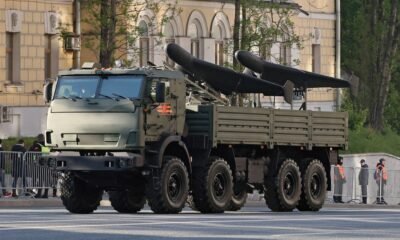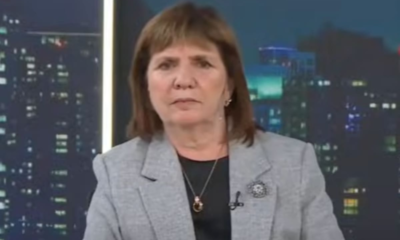INTERNACIONAL
Con su aliado Irán bajo ataque, Hezbollah se mantiene al margen, por ahora

Hezbollah ha optado por contenerse en medio de las crecientes tensiones entre Irán e Israel, presionado por el frágil panorama interno en Líbano y apostando a que el conflicto aún no representa una amenaza existencial para su aliado clave, según informan diplomáticos y fuentes cercanas al grupo.
La contención también obedece a razones prácticas: sus combatientes y arsenales quedaron gravemente dañados durante el conflicto con Israel el año pasado, que acabó con la vida de varios altos mandos, incluido su histórico líder Hasan Nasrallah.
Considerado durante años como el actor no estatal más poderoso del mundo, Hezbollah fue pieza central del llamado “eje de la resistencia” liderado por Irán: una red de fuerzas aliadas que actúan como freno ante un posible ataque israelí contra la república islámica.
La postura actual de Hezbollah ha sido recibida con alivio tanto por la ciudadanía libanesa, agotada por la guerra, como por el nuevo gobierno, que busca reconstruir el país y someter el poder armado del grupo a control estatal. Sin embargo, funcionarios y allegados al grupo advierten que esa posición podría cambiar si el régimen iraní llegara a tambalearse.
Un diplomático en Líbano, que habló bajo condición de anonimato, señaló que aunque esta decisión favorece la estabilidad del país, aún persiste el temor de que Hezbollah actúe militarmente.
Qassim Qassir, analista político cercano a Hezbollah, explicó que el grupo no ve una necesidad urgente de intervenir por Irán en este momento, pero advirtió: “Todo está sobre la mesa. Nada está fuera de los límites”.
Desde el ataque israelí a Irán la semana pasada, Hezbollah ha elogiado la “firmeza” de su aliado y advertido que Israel pagará las consecuencias, aunque sin comprometerse explícitamente a intervenir. Esta cautela contrasta con la respuesta inmediata que tuvo el 7 de octubre de 2023, cuando lanzó misiles contra el norte de Israel en solidaridad con Hamas, tras el ataque de este grupo palestino a Israel.
El viernes, el líder actual del grupo, Naim Qassem, declaró que la agresión israelí “tendrá repercusiones graves para la estabilidad regional” y que “no quedará sin respuesta”. Reafirmó el compromiso con la “resistencia” y el respaldo a Irán “en todas las medidas que tome para defenderse”.

Líbano aún lucha por recuperarse del enfrentamiento con Israel del año pasado, que se intensificó en septiembre y concluyó con un frágil alto al fuego a finales de noviembre. Los bombardeos israelíes devastaron pueblos del sur y zonas enteras de los suburbios de Beirut, dejando un saldo de 14 mil millones de dólares en daños, según el Banco Mundial. La reconstrucción requeriría otros 11 mil millones.
La crisis económica prolongada —anterior al conflicto— sigue generando inflación y socavando la esperanza de un buen verano turístico. Los ataques aéreos israelíes continuos y la creciente tensión con Irán han alejado a los visitantes.
Videos virales muestran misiles balísticos iraníes sobrevolando Líbano, incluso en fiestas al aire libre. En uno de ellos, un saxofonista llamado Alain Otayek sigue tocando en una azotea mientras los asistentes graban el paso de los misiles. “Vi que la gente sacaba sus teléfonos, levanté la vista y vi los misiles. Sentí que debía seguir tocando para transmitir paz. Todos tememos que vuelva a pasar. Pensamos que la guerra del año pasado sería la última, que este verano sería genial”, dijo.
El nuevo gobierno tecnocrático, liderado por el primer ministro Nawaf Salam, ex presidente de la Corte Internacional de Justicia, ha tenido dificultades para atraer inversiones o ayuda significativa de los países del Golfo. Tras una reunión de gabinete, Salam condenó la “peligrosa agresión israelí” contra Irán, pero enfatizó la necesidad de “consolidar la estabilidad, especialmente en el sur, y evitar que Líbano se vea arrastrado o implicado en la guerra regional”.

Un funcionario libanés aseguró que tanto Hezbollah como las facciones palestinas en el país recibieron un mensaje claro: “Líbano no participa en este conflicto”. La respuesta fue “positiva”, y se dieron garantías de no intervenir.
El mismo funcionario expresó “preocupación sobre la capacidad real de Hezbollah para combatir”. Aseguró que aunque aún conserva misiles, su despliegue es complicado debido a la vigilancia constante de Israel, que estaría “listo para atacar cualquier depósito o movimiento sospechoso de inmediato”.
Además, Hezbollah enfrenta dificultades económicas tras el conflicto. Sus gastos aumentaron al tener que ayudar a sus bases afectadas por la guerra, mientras sus fuentes de ingresos se ven presionadas. El gobierno ha intentado restringir el dinero que llega a través del aeropuerto de Beirut, y las rutas de contrabando desde Siria se han visto afectadas tras la caída del régimen de Bashar al-Assad, antiguo aliado del grupo.
Ghassan Skaf, parlamentario independiente, comentó: “Creemos que Hezbollah debe seguir conteniéndose y no intervenir, sin importar cuán grave sea la escalada”. Hezbollah está “débil ahora, no quiere iniciar ninguna acción” que lo haga impopular. Cualquier intervención militar sería ineficaz, “podría destruir el país. Sería un escenario en el que todos pierden”, aseguró. Aun así, advirtió que si el conflicto entre Irán e Israel escala a una guerra regional, “el panorama podría cambiar”.
Durante la guerra pasada, algunos partidarios de Hezbollah en Líbano se quejaron de que Irán no hizo lo suficiente para defenderlos, especialmente tras la muerte de Nasrallah en un ataque israelí masivo. Pero Qassir asegura que estas críticas no influyen en la postura actual del grupo. “Irán ha brindado apoyo militar, financiero y técnico durante décadas, pero no puede luchar en su lugar. Hezbollah nunca abandonará a Irán”, concluyó.
© 2025, The Washington Post.
Middle East,Top Pictures,Military Conflicts,TEHRAN
INTERNACIONAL
Schumer, Democrats try to save face, blame GOP for possible government shutdown
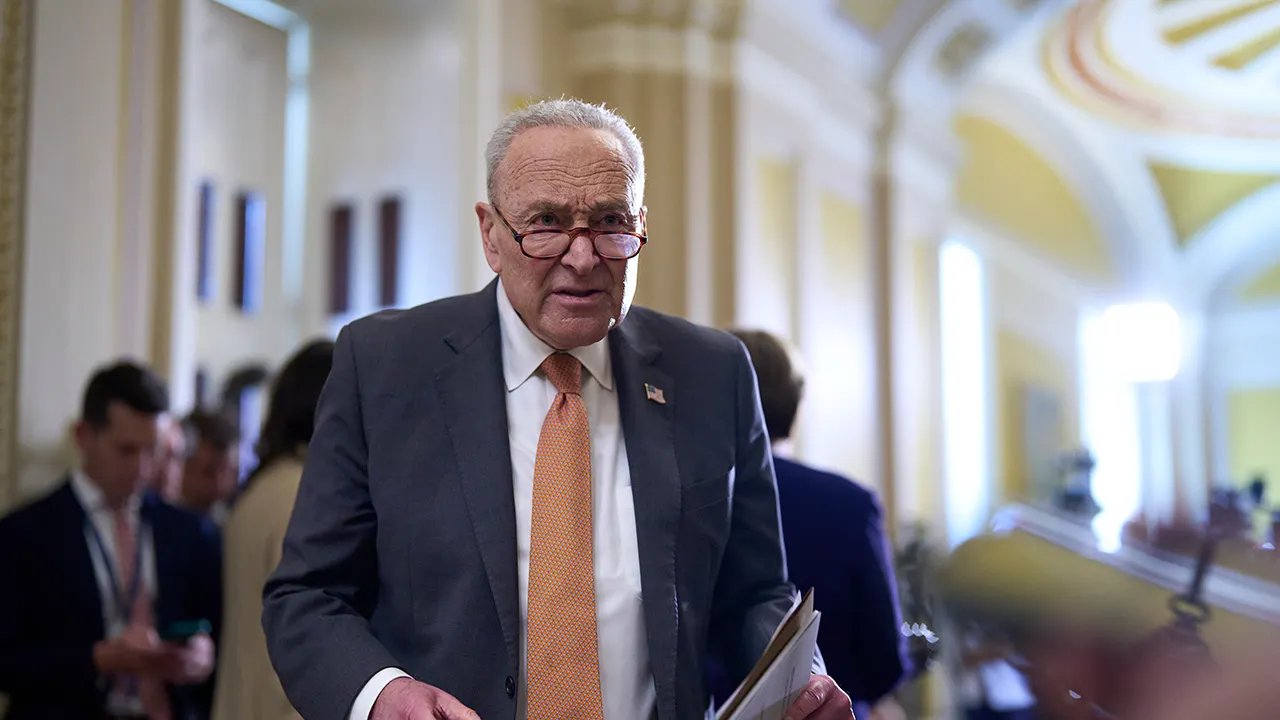
NEWYou can now listen to Fox News articles!
Congressional Democrats are trying to get on the same page and display a unified front after threatening to derail the government funding process.
Senate Minority Leader Chuck Schumer, D-N.Y., and House Minority Leader Hakeem Jeffries, D-N.Y., met behind closed doors Tuesday night, along with the top Democrats in the House and Senate Appropriations Committees, to plot a course forward in the forthcoming government funding fight.
SENATE WEATHERS DEM OPPOSITION, ADVANCES FIRST GOVERNMENT FUNDING BILL
Senate Minority Leader Chuck Schumer, D-N.Y., turns to an aide during a news conference at the Capitol in Washington, D.C., on June 3, 2025. (AP Photo/J. Scott Applewhite)
The meeting came after Democrats in the upper chamber overwhelmingly supported the first government funding bill to hit the Senate floor, one that would fund military construction and Veterans Affairs. Ahead of the vote, Senate Democrats had signaled they may vote against the bill and further obstruct the appropriations process because of highly partisan legislation rammed through the upper chamber by Senate Republicans.
«We all want to pursue a bipartisan, bicameral appropriations process,» Schumer said. «That’s how it’s always been done, successfully, and we believe that, however, the Republicans are making it extremely difficult to do that.»
The meeting just off the Senate floor was meant to get congressional Democrats on board with a messaging plan over the next weeks and months ahead of the Sept. 30 deadline to fund the government.
CONGRESSIONAL REPUBLICANS FACE BRUISING BATTLE TO AVOID GOVERNMENT SHUTDOWN
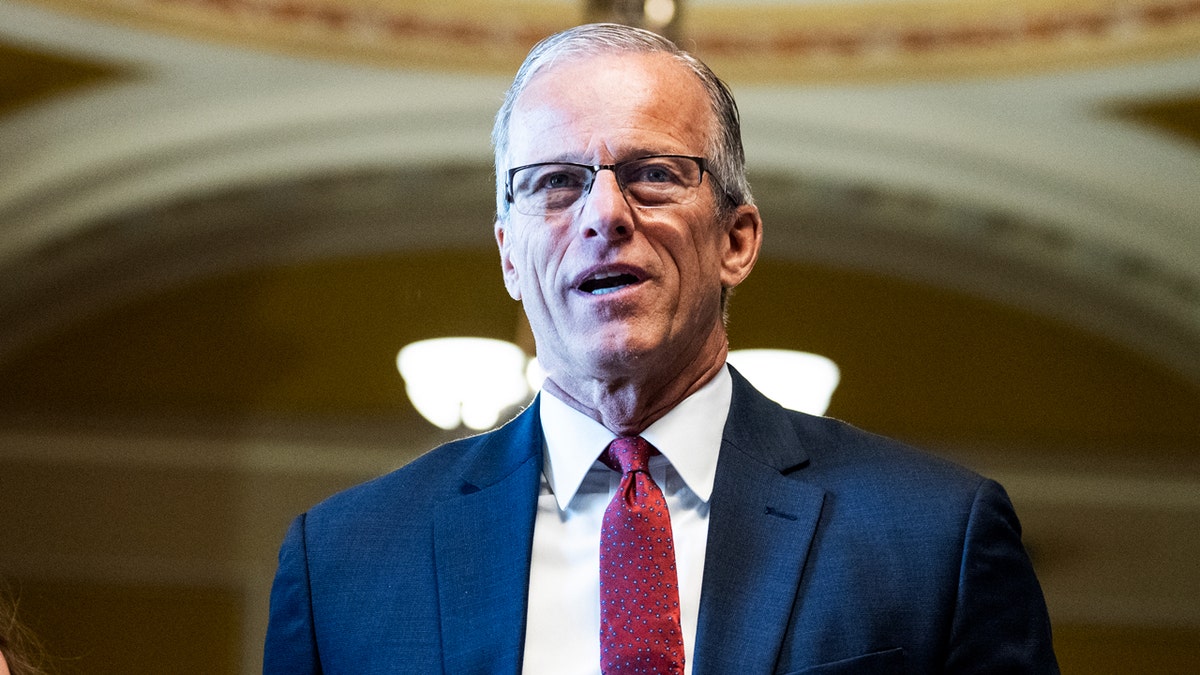
Senate Majority Leader John Thune, R-S.D., is seen after the Senate luncheons in the U.S. Capitol on June 24, 2025. (Tom Williams/CQ-Roll Call, Inc via Getty Images)
It was also likely designed to prevent a repeat of the Democratic debacle in March, when Schumer broke with Jeffries and threatened to shutter the government before ultimately caving and providing Republicans the votes necessary to advance yet another government funding extension, known as a continuing resolution.
Republicans are quick to point out that when Schumer led the upper chamber, none of the House GOP’s spending bills made it to the floor — in Congress, the spending process begins in the lower chamber.
Since taking over earlier this year, Senate Majority Leader John Thune, R-S.D., has committed to returning to regular order, or passing each of the dozen spending bills to fund the government, and trying to get the appropriations process back to normal.
However, it’s a feat that hasn’t been successfully done in Washington since the late 1990s.
«Frankly, I think a lot of us around here think [this] is long overdue,» Thune said.
However, Democrats contend that their trust in Republicans is wearing thin after two major partisan bills, one being President Donald Trump’s «big, beautiful bill,» and the other the president’s $9 billion clawback package, were pushed through the chamber without any Democratic input.
‘BAIT AND SWITCH’: SCHUMER WARNS OF BITTER FUNDING FIGHT OVER GOP CUTS PLAN

Representative Hakeem Jeffries, a Democrat from New York, speaks during a news conference at the U.S. Capitol in Washington, D.C., on Feb. 6, 2025. (Tierney L. Cross/Bloomberg via Getty Images)
Thune argued that Senate Democrats were using the rescissions package to shut down the appropriations process and effectively shut down the government.
In the Senate, most bills that come to the floor require at least 60 votes to smash through the filibuster, meaning that most legislation requires bipartisan support to some extent.
Earlier this year, the House GOP produced a partisan government funding extension that was a tough pill for Senate Democrats to swallow, but they still ultimately opted to vote for it. This time around, they’re demanding more involvement in the process.
CLICK HERE TO GET THE FOX NEWS APP
Jeffries said that congressional Democrats would play ball if the process was «bipartisan and bicameral in nature» and put the onus of a partial government shutdown at the feet of congressional Republicans.
«House Republicans are, in fact, marching us toward a possible government shutdown that will hurt the American people,» he said.
However, House Speaker Mike Johnson, R-La., threw the responsibility on Democrats over whether the government would shutter or stay open come the end of September.
«They’re gaming out how they can shut the government down,» Johnson told Bloomberg Government.
INTERNACIONAL
Ucrania: el presidente Volodimir Zelenski enfrenta críticas y protestas por una nueva ley anticorrupción
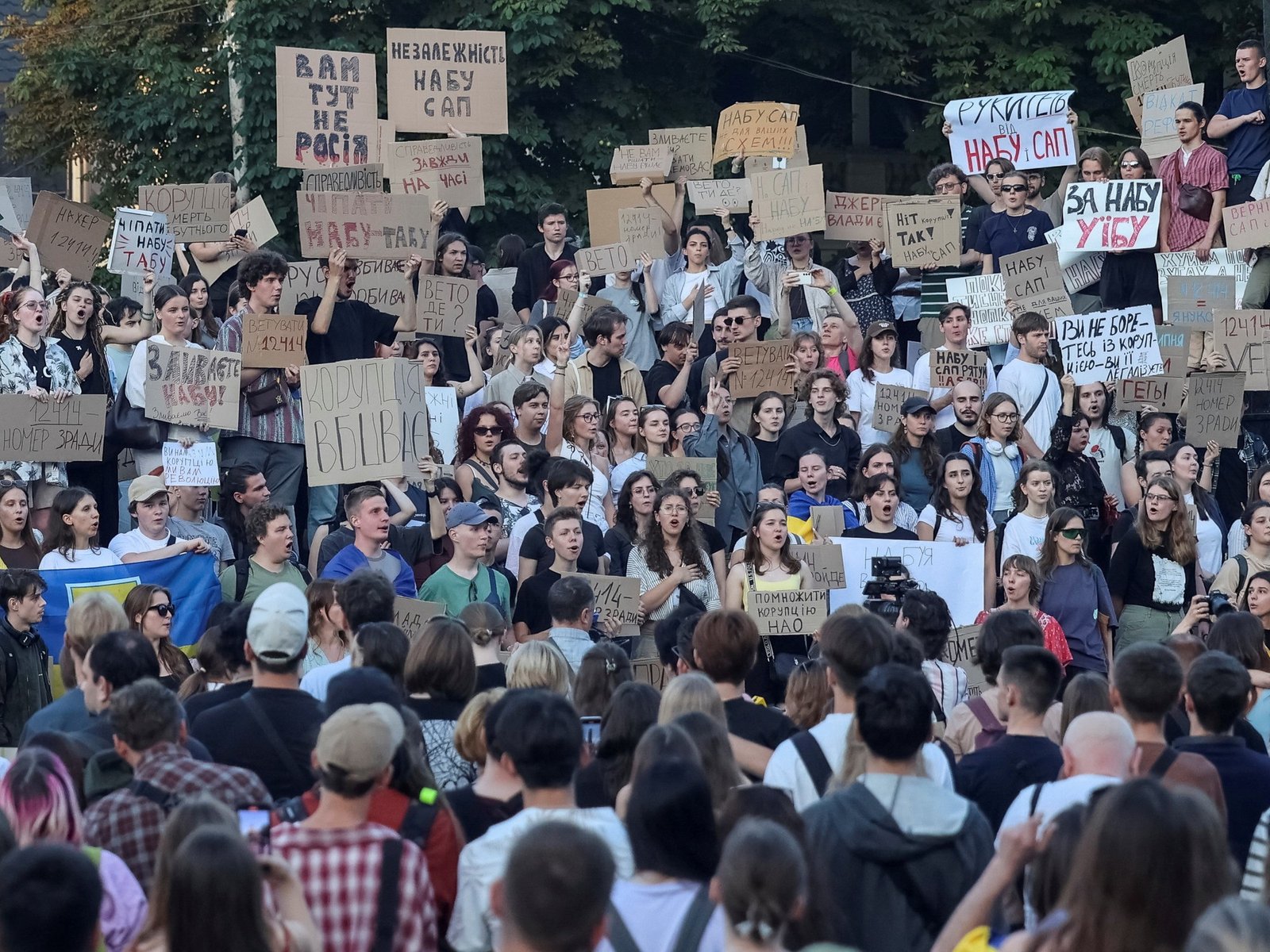
Advertencia de funcionarios de la UE
Negociaciones en Estambul
Ucrania,Volodímir Zelenski,Rusia,Guerra Rusia-Ucrania
INTERNACIONAL
Trump admin official to meet with Israel, Qatar amid push for Gaza ceasefire
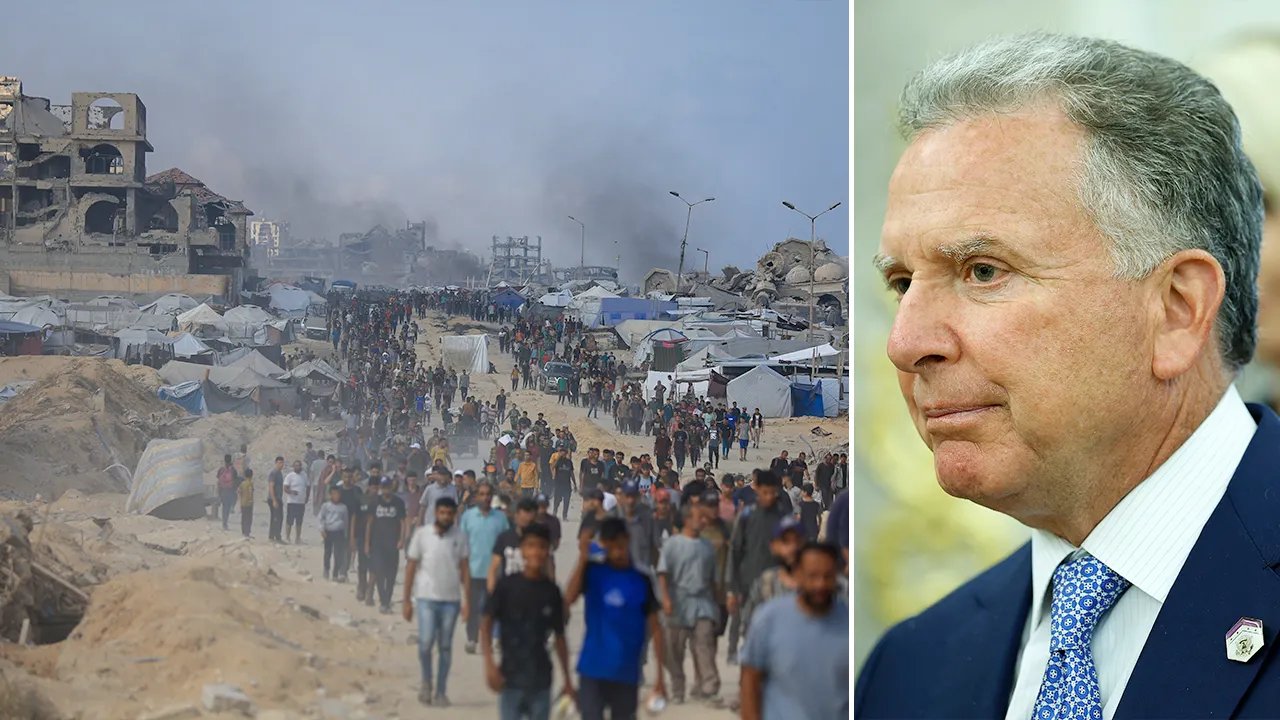
NEWYou can now listen to Fox News articles!
Special Envoy Steve Witkoff is expected to meet with Israeli and Qatari officials in Rome on Thursday as the U.S. pushes for a ceasefire deal in Gaza.
Hamas and Israel are engaging in indirect negotiations to end the war that has raged on for nearly two years. However, Witkoff’s itinerary depends on the progress made in the talks. If the parties make enough progress in Rome, Witkoff will reportedly travel to Doha to finalize the deal, according to Axios.
The outlet also reported that sources indicated the meeting in Rome could suggest that a deal is near — possibly just days away.
Earlier this month, Israel agreed to a U.S.-backed, 60-day ceasefire proposal that would lead to the end of the war. This deal includes a phased release of hostages, the withdrawal of Israeli troops from parts of Gaza and talks on ending the conflict, according to Reuters.
Special Envoy Steve Witkoff is expected to meet with Israeli and Qatari officials in Rome on Thursday to secure a deal to end the war in Gaza. (Dawoud Abo Alkas/Anadolu/Kevin Dietsch/Getty Images)
ISRAEL, HAMAS TALKS DRAG AS AID GROUP CHAIR TELLS UN TO STOP ACTING LIKE THE ‘MAFIA’
«My representatives had a long and productive meeting with the Israelis today on Gaza. Israel has agreed to the necessary conditions to finalize the 60 Day CEASEFIRE, during which time we will work with all parties to end the war. The Qataris and Egyptians, who have worked very hard to help bring peace, will deliver this final proposal. I hope, for the good of the Middle East, that Hamas takes this deal because it will not get better — IT WILL ONLY GET WORSE,» President Donald Trump wrote on Truth Social on July 1.
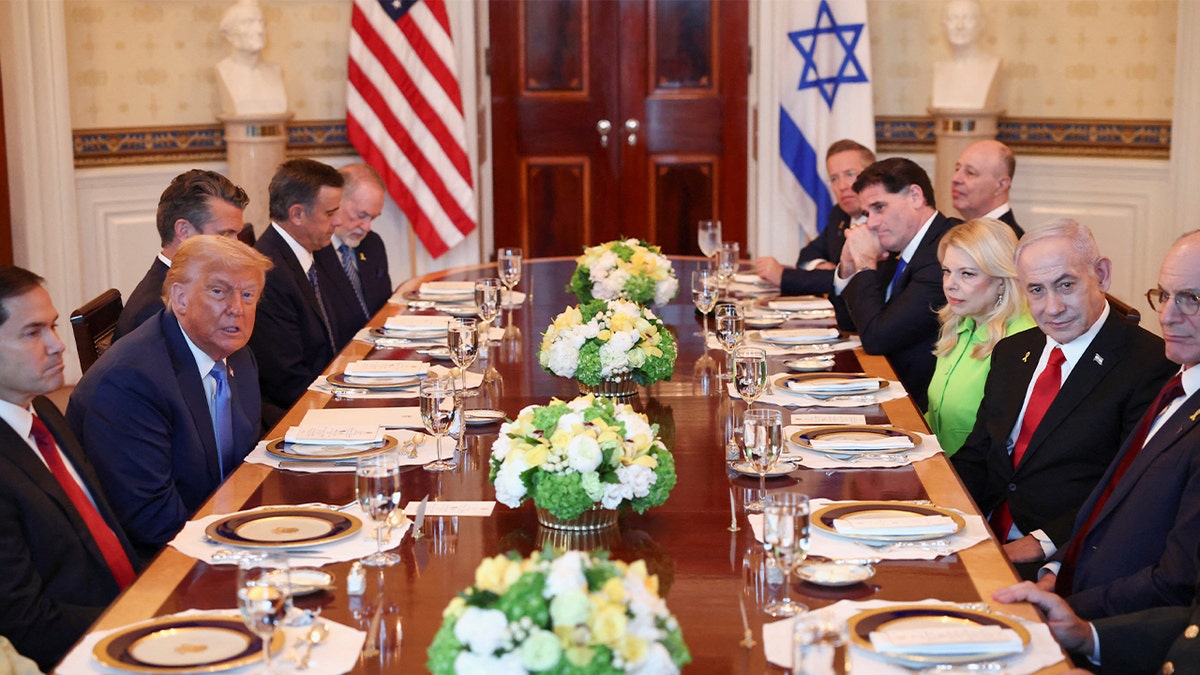
President Donald Trump holds a bilateral dinner with Israeli Prime Minister Benjamin Netanyahu, with Defense Secretary Pete Hegseth and Secretary of State Marco Rubio in attendance, at the White House in Washington, D.C., July 7, 2025. (REUTERS/Kevin Lamarque)
ISRAEL ACCEPTS TRUMP-LED CEASEFIRE PLAN THAT COULD END GAZA WAR WITHIN 60 DAYS
Trump appeared optimistic about the possibility of Israel and Hamas reaching a deal to end the war. On July 16, while signing the HALT Fentanyl Act, Trump thanked Witkoff, praising him for doing «a fantastic job» and said that there was «some good news on Gaza,» though he did not elaborate.
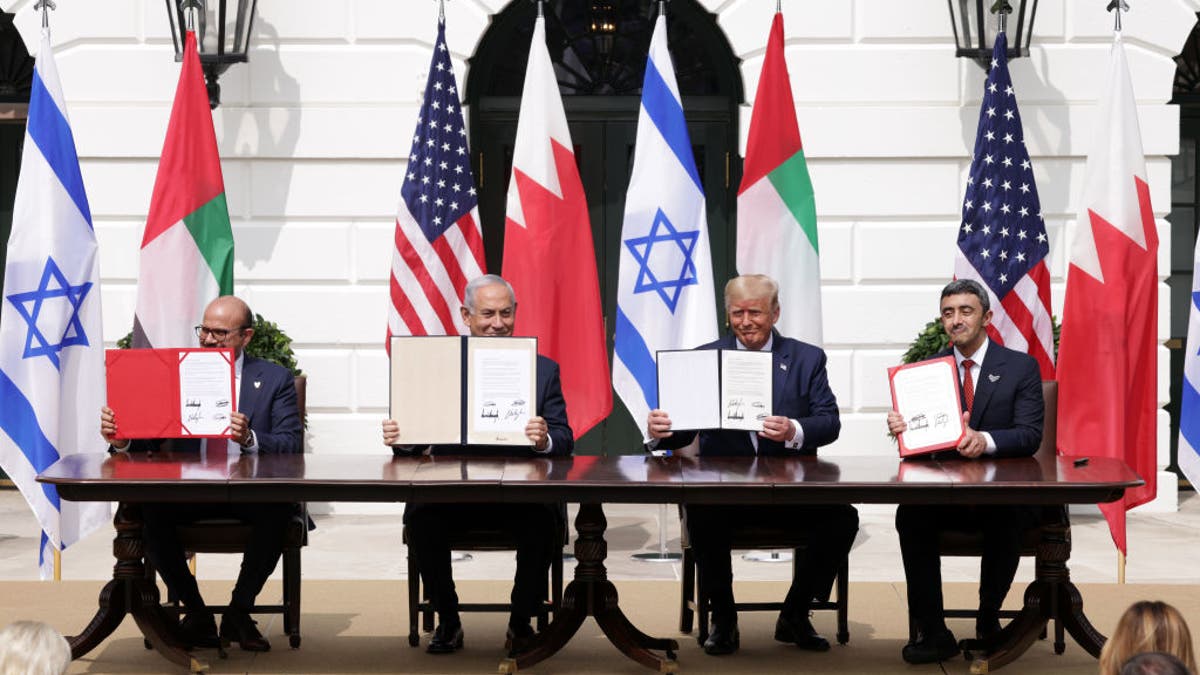
From left to right, Foreign Affairs Minister of Bahrain Abdullatif bin Rashid Al Zayani, Prime Minister of Israel Benjamin Netanyahu, President Donald Trump and Foreign Affairs Minister of the United Arab Emirates Abdullah bin Zayed bin Sultan Al Nahyan participate in the signing ceremony of the Abraham Accords on the South Lawn of the White House on Sept. 15, 2020, in Washington, D.C. (Photo by Alex Wong/Getty Images)
TRUMP PRESSURES ISRAEL TO END GAZA CONFLICT AS HE EYES ABRAHAM ACCORDS EXPANSION
If Trump can secure an end to the war, it could mean an expansion of the Abraham Accords, one of the signature efforts of Trump’s first administration, which saw Israel sign normalization agreements with the United Arab Emirates, Bahrain, Morocco and Sudan. However, Trump has yet to detail which countries would be added.
Israeli Minister of Foreign Affairs Gideon Sa’ar said on June 30 that Israel was «serious» about seeking an end to the conflict. He added that Jerusalem has an interest in «countries, such as Syria and Lebanon, our neighbors, to the circle of peace and normalization.»
CLICK HERE TO GET THE FOX NEWS APP
Fox News Digital’s Greg Wehner and Caitlin McFall contributed to this report.

 POLITICA3 días ago
POLITICA3 días agoExpulsada del Gobierno, Victoria Villarruel empieza a tomar distancia, pero no tiene proyecto político para este año

 POLITICA3 días ago
POLITICA3 días agoLa CGT evalúa adelantar a octubre el recambio de sus autoridades y define una movilización contra Milei

 POLITICA2 días ago
POLITICA2 días ago🗳️ El chamuyo de las elecciones en la Provincia: se postulan, pero no a asumen

